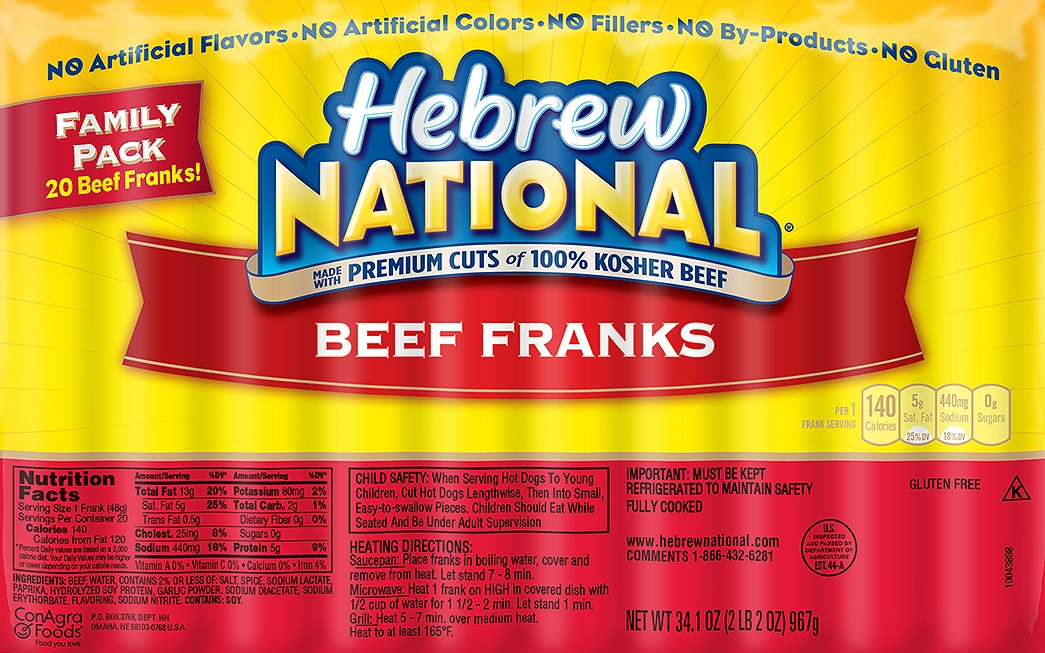Hebrew National has been producing hot dogs and other sausage products for well over a century. Founded on the Lower East Side of Manhattan in 1905 by Russian Jewish immigrant Theodore Krainin, Hebrew National became known early on for the quality of its product — higher than what food laws at the time required. But it wasn’t until 1965 that the company adopted its famous slogan, “We answer to a higher authority” — a reference not only to their claim to have better quality meat than their competitors, but also to the fact that their products are kosher, abiding by Jewish dietary law.
Today, Hebrew National hot dogs carry a Triangle K kosher certification symbol on their packages and the company’s website proudly proclaims that its products are made with “premium cuts of 100% kosher beef.” But many observant Jews do not eat Hebrew National products.
The concern began because Hebrew National was performing its own internal supervision — there was no external review of their kashrut practices. Many felt the company’s standards did not match those set by mainstream kosher certification organizations like the Orthodox Union.
It was not just Orthodox Jews, either. Many in the Conservative movement also felt that Hebrew National’s products were not kosher.
With your help, My Jewish Learning can provide endless opportunities for learning, connection and discovery.
In the early 2000s, Hebrew National switched from internal kosher certification to an external oversight group, Triangle K. But in 2004, many in the Conservative movement still found the kosher standards of the company insufficient. A new arrangement was made that allowed a rabbi representing the movement to work with Triangle K to increase supervision standards which made the brand acceptable to Conservative Jews. Still, most Orthodox Jews do not consider Hebrew National hotdogs kosher.
In May of 2012, the dispute made it to court when a class action lawsuit was filed against Con-Agra, which owns Hebrew National, in federal court in Minnesota. The lawsuit charged that many of the practices in its factories would render the meat unkosher (including the fact that the lungs of animals were not inspected properly for blemishes and that some animals were slaughtered improperly), and that the company mistreated its kosher supervisors and meat slaughterers. The company’s image was not helped by an advertising campaign that included obviously unkosher dishes. The lawsuit was dismissed in early 2013.
Despite reforms in factory practices and dismissal of the lawsuit, many observant Jews continue to refrain from eating Hebrew National hot dogs. This goes doubly for Hebrew National hot dogs served at baseball games that are cooked on the same grills as non-kosher dogs.



